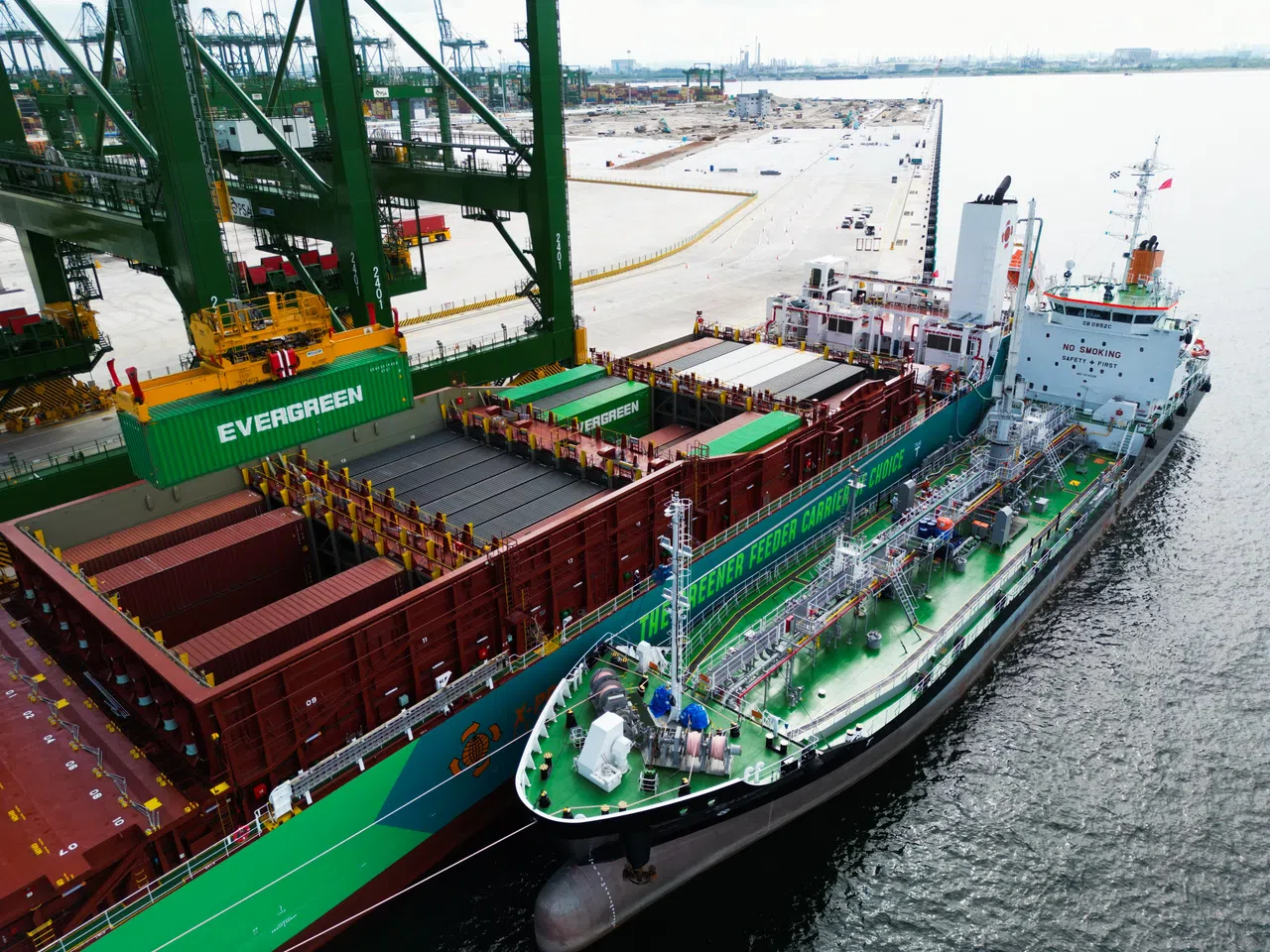IN A first for South-east Asia, Singapore showed on Monday (May 27) that cargo can be loaded onto a ship even as it is being refuelled with methanol, similar to ships that use conventional fuel.
The successful operation suggests that safety concerns about the alternative fuel need not impede regular container port operations.
Unlike conventional ship fuel, methanol vapours are highly toxic. It has a low flash point and methanol flames can be difficult to see.
According to representatives of the organisations involved, safety procedures and the operation’s planning took around six months.
At Tuas Port, Singapore shipping carrier X-Press Feeders’ (X-Press) Eco Maestro took on around 300 tonnes of bio-methanol from the bunkering vessel MT Kara, while containers were moved onto the ship.
X-Press chief operating officer Francis Goh said that the operation was a first for Asia and likely also for the world.
“(With today’s operation), the Port of Singapore is ready for commercial scale operations for shore-to-ship, ship-to-ship, and simultaneous operations for methanol, and the same methodology is being followed for other new maritime fuels such as ammonia and hydrogen,” said the Maritime & Port Authority of Singapore (MPA) in a joint statement with its partners.
On Friday, Singapore carried out ship-to-ship bunkering of 1,340 tonnes of blended methanol, in an operation that paves the way for a “full capability to deliver methanol bunkering on a commercial scale”, said MPA.
The operation was conducted with X-Press, PSA Singapore, Dutch energy company OCI Global, marine service provider Global Energy Group and Vopak.
GET BT IN YOUR INBOX DAILY
Start and end each day with the latest news stories and analyses delivered straight to your inbox.
The Eco Maestro is the first of X-Press’ planned fleet of 14 ships that can use both methanol and conventional fuel oil. Four of the ships are being built by SGX-listed Yangzijiang : BS6 0%, which is also building methanol-powered ships for carriers Maersk and ONE.
Later this year, X-Press will begin commercial operations with methanol-fuelled ships on two Baltic routes centred on Rotterdam and Antwerp-Bruges.
As a feeder carrier rather than a long-distance shipper, X-Press moves containers from regional hubs to smaller ports.
The new ships will operate mostly in Europe but could be deployed to other regions, depending on the supply of methanol, said Goh. OCI Global has been contracted to provide ships with green methanol, which reduces their emissions by 65 per cent compared with conventional marine fuel.
According to X-Press representatives, clients have to pay around 50 per cent more per container on a methanol-fuelled ship, compared to a ship using conventional fuel, but this would translate to only “a few cents” extra per item for eventual end-consumers.
Goh added that the use of green methanol means that X-Press would have to pay far less under the European Union Emissions Trading System (ETS), which came into effect on Jan 1.
Under the system, owners of ships travelling to and from the EU have to pay the equivalent, in carbon credits, of 40 per cent of emissions resulting from such trips. This will rise to 70 per cent in 2025, and 100 per cent in 2026.
X-Press representatives said that for each twenty-foot equivalent unit on its Rotterdam-Antwerp-Riga route in 2024, the ETS charge would amount to 1.40 euros with green methanol compared to 9.90 euros with conventional fuel.
It will rise to 2.40 euros and 16.40 euros for green methanol and conventional fuel, respectively, in 2025, and to 3.50 euros to 23.10 euros in 2026.



